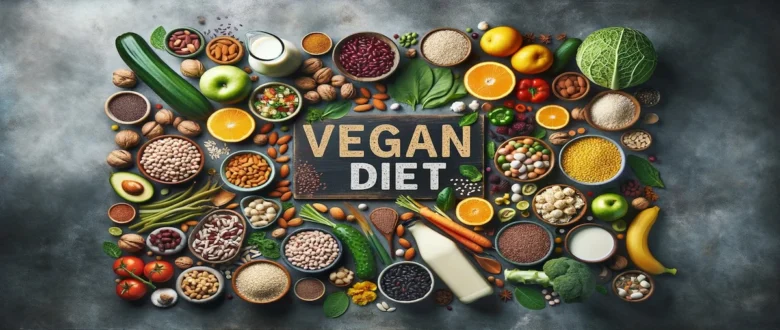Have you ever given thoughts to the effects of the food choices you make not only on your well-being but the environment too? As we progress into a world with more vegan’s and vegetarians, it is becoming clear that there is something worthwhile about a plant-centric way of life. Whether you are interested in understanding the possible advantages or merely searching for ideas to spice up your diet, you have come to the right site.
The foray into vegetables, legumes and cereals is both fun and fulfilling. In addition, it must be underscored that these diets also help people in many ways yet they are still beneficial to the environment and bring the principles of humane treatment of animals. So eat your carrot sticks and hummus and get ready to see why picking up a vegan or vegetarian diet might be one of the wisest moves you will ever make!
Health Intact: A Plant-Based Diet
People who adopt a plant-based diet experience incredible health benefits. Studies have demonstrated that a vegetarian or vegan diet is associated with a lower risk of chronic diseases like coronary heart disease and type 2 diabetes. These diets are high in fruit, vegetables, whole grains and legumes, which can be termed nutrient-dense. They contain an excess of vitamins, minerals, antioxidant substances and even fiber, which are said to be of general health benefits.
It helps you maintain weight also. Such foods are generally high in bulk but low in calories. This means that you can have fulfilling meals and still avoid those extra pounds. Through such benefits, digestive health also improves significantly. The addition of fiber helps in improving digestion as well as movement. Additionally, numerous people report an increase in their energy levels once they adopt a plant-rich diet. It looks as though it helps to feed a body properly with good stuff.
Environmental Impact of Eating Meat:
The most impact is from eating meat in the environment. The production of livestock is one of the livestock means that it’s responsible for about 14.5% of all greenhouse gas emissions in the world, mainly methane gas from animals. Another serious problem associated with meat eating is the loss of trees. Every year, great stretches of trees are cut down in order to make pastures. As a result, not only does this eliminate wildlife, but also decreases the rate of Carbon Dioxide absorption that the trees provided.
Water, for example, when it comes to the use of natural resources in the meat industry is also very concerning. To produce only one pound of beef, over 1,800 gallons of water is needed. Such practices deplete already scarce freshwater sources and make one wonder how viable such models are for the future. Pollution makes the situation worse because chemicals and waste, including run-off from farms, enter water bodies and endanger eco-systems and society as a whole. With the growing need for meat, these problems are growing, making it imperative that we change what we eat.
Philosophical Aspects:
A vegan or vegetarian lifestyle may be adopted in large part because of the strong conviction regarding a humane treatment of animals. Plenty of people raise their voices to combat the cruelty inflicted on animals for the purpose of industrial farming. The suffering they experience can be brutal and even barbaric. Animals who are raised for human consumption are often crowded, confined, and insufficiently allowed to show natural behaviors. This situation presents some challenges to us as consumers. We maximize our satisfaction by making use of plant-based foods instead of cruelty-infusing ones.
Furthermore, it is important to mention that many healthy conscious individuals, such as vegans and vegetarians, claim respect for every conscious being. Such an orientation enhances the responsibility of the individuals towards the food they eat. Not eating meat sends a message that life is precious even in forms other than human beings. Each consumption is an occasion to apply the said principles—that is, upholding sympathy instead of cruelty and feeding on a variety of plant-infused diet.
Guidelines on Moving to a Vegan or Vegetarian Way of Living:
- Moving to such a diet can be quite challenging for most people. It is better, for instance, to have one plant-based meal a day. This stepwise method, however, may be slow to consider but builds fortify the tongue.
- Try new ingredients as lentils, quinoa, and/or chickpeas. These are healthy and also broad in their usage.
- Visit local markets and buy fruits and vegetables. Fresh and in-season fruits and vegetables will give a tantalizing taste to the dishes.
- It is alright to look for regional substitutes for the most loved foods. There are great options for cheese, milk and even meat that do not go against the ethics of veganism.
- Look for plant-based groups or online platforms. Such sharing of one’s experiences of the process can help boost you along this journey.
- Get in the habit of analyzing what foods you’ll be drawn to and how those feelings will affect you. This is a practical way to ensure that when you are on this new journey, you will be aware of your meals.
Conclusion:
When we switch to a vegetarian/vegan diet, we do not confine ourselves. We learn to appreciate new foods without any regret as we take care of our bodies and our earth. The journey can be stimulating too, with all brownies, baking, new recipes and cheerful, tasty foods. You will discover that many plant-based dishes are great and filling, too.
Making better decisions on what we choose to eat creates a win-win situation. For over a billion years. With every meal, you are an active participant in endeavors that assure earth-friendly benefits for future generations. It’s common to think of healthy diets as an issue of what food to eat. Such a change is appealing because it is more than just food. Johns and Weinstein stress that there is a change to every increasing growing awareness of health care issues. Every step, no matter how small, is helpful.
If it is a new direction in your health, you want to live an ethical life, or if you just want to learn several new recipes, then try this. The quest awaits!
FAQs:
1. What is a third common reason why people stop being vegetarians?
A vegetarian diet does not include any meat, fish or fowl but may include dairy and eggs. On the other hand, a vegan will not eat any animal product whatsoever, so v. dairy, eggs, honey, all of those.
2. Will a plant-based diet be too low in protein for me?
Of course! You can find many servings of protein from plants, such as legumes (beans, lentils), tofu, tempeh, nuts, seeds, and whole grain foods. Now days you can virtually meet protein requirements without animal protein by rational planning.
3. Am I going to miss vital nutrients?
It is possible to be a responsible omnivore on a vegan or vegetarian diet, but there are some nutrients like vitamin B12 and iron-rich foods that need special attention since they are more saturated in non-vegetarian foods. The use of fortified foods and supplements can assist in populating any gaps.
4. How do I handle social situations, especially when eating out as a vegan/vegetarian?
Most food establishments would have some forms of plant-based options already for their customers due to the increase in patrons who look for them. Maybe it’s a good idea to look at the menu beforehand or recommend places that have something for everyone.
5. Is there any disadvantage to these types of diets in terms of health?
A balanced macro diet can, therefore, be relatively healthy for both outcomes without the health risks usually related to a high intake of red meat or processed foods, simply with the addition of other food masses such as fruits, vegetables or even grains and balancing the nutrient intake.




